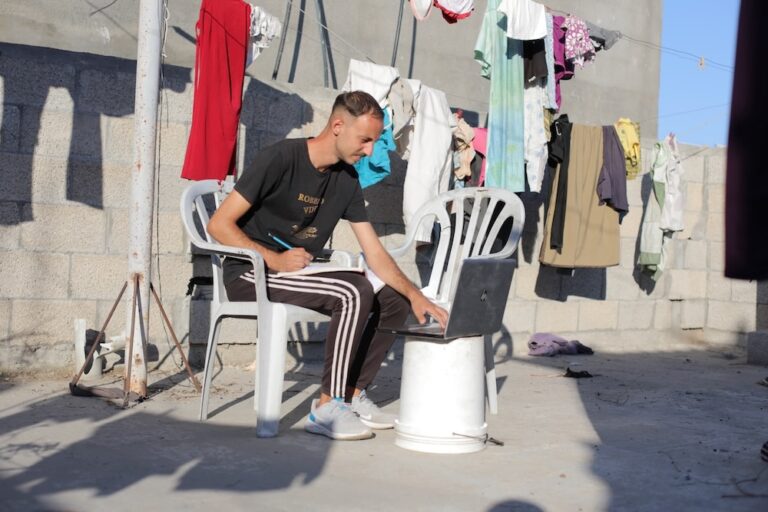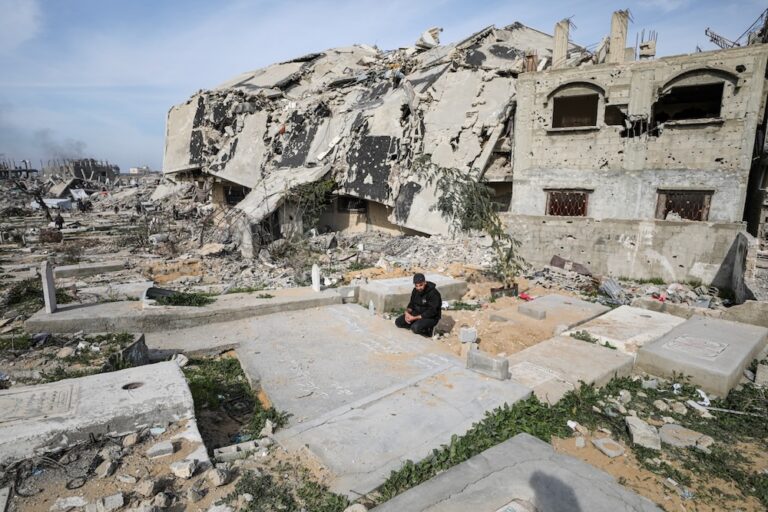(IPI/IFEX) – The following is an IPI press release: Jerusalem, 1 April 2003 IPI Delegation Promotes Better Relations Between Foreign Press and Israeli Government A mission of the Vienna-based International Press Institute (IPI), mandated to look into the dispute between the Foreign Press in Israel and the Government Press Office (GPO), today ended its three-day […]
(IPI/IFEX) – The following is an IPI press release:
Jerusalem, 1 April 2003
IPI Delegation Promotes Better Relations Between Foreign Press and Israeli Government
A mission of the Vienna-based International Press Institute (IPI), mandated to look into the dispute between the Foreign Press in Israel and the Government Press Office (GPO), today ended its three-day visit here.
The mission met with the parties to the dispute – representatives of the Foreign Press led by the chairman of their Association, AP bureau chief Dan Perry, and the Director of the GPO, Daniel Seaman. The mission also met with the Speaker of the Knesset, Reuven Rivlin, with the Minister of the Interior, Avraham Poraz, with the Director of the Prime Minister’s Bureau, Dov Weisglass, and with the President of the Press Council, Prof. Mordechai Kremnitzer.
The mission studied two key problems that have cast a pall these past two years over relations between the Foreign Press and Israel government agencies.
One problem concerns the frequent denial of work permits to employees of the foreign media. The source of this problem is that the GPO has changed its previous policy and has begun sending foreign correspondents and foreign media personnel applying for work permits to the Employment Service to obtain that service’s consent to their employment. In the past, the GPO would convey directly to the Interior Ministry its own consent to the issuance of the appropriate work and residency permits. This change of policy means that all applicants are now subject to the rules and practices applying in the general labour market – so that, at the request of an Israeli labour union, some foreign media personnel are having their applications denied. This impairs the ability of the foreign television networks to cover events in the Palestinian territories.
The second problem concerns the denial – other than in security-related circumstances – of press cards to Palestinians working for the foreign media in the Palestinian Territories. This seriously prejudices their ability to perform their professional duties and thus impairs the ability of these
media to function properly.
The mission members expressed their concern over the infringement of press freedom arising from these bureaucratic difficulties. The mission also expressed anxiety over the possibility that these difficulties stem from a political intent designed to reduce foreign media coverage in the territories and to hit back at certain foreign media whose coverage is deemed to damage the standing of the State of Israel.
The members of the mission made it clear that they had not come to Israel as a protest mission, but rather as representatives of an international organization concerned for the freedom of the press. They sought to help ease the difficulties and resolve the dispute. The members of the mission see their role in Israel as one of alerting the senior government echelons and the public here to the importance of press freedom, and of freedom of movement and of access for members of the media – even at this time of intense and violent conflict between Israel and Palestine. The mission members pointed out that never in Israelâs history – not even in the toughest of times – had difficulties of this extent been put in the way of the foreign media.
The officials who met with the mission responded with interest to the mission’s representations and expressed their desire to resolve the dispute. The mission members noted with gratification Mr. Weissglass’ firm assertion that there is no political design to restrict the press and that the issue was one of bureaucratic difficulties which needed to be resolved. The mission members understood from Mr. Weissglass that a solution might be shaping up for the problem of press passes for Palestinian employees of the foreign media. The mission members were also encouraged by the Interior Minister’s expressed readiness to examine the matter of the work and residency permits, and also by the Knesset Speaker’s expressed interest in seeing an amicable solution. The mission members thank all these officials for the openness that they demonstrated in their meetings and for their willingness to listen and to respond.
The mission will publish a report summarizing their impressions and stating their conclusions based on their findings. The IPI will continue to monitor developments, hopeful that Israel will continue to uphold its status as a democracy that preserves and promotes press freedom, even in difficult periods.
The IPI Delegation members are:
Johann P. Fritz, Director, International Press Institute (IPI), Vienna, Austria
Stuart H. Loory, Lee Hills Chair in Free-Press Studies, School of Journalism, University of Missouri, Columbia, MO., USA; Editor, IPI Global Journalist
Raymond Louw, Editor & Publisher, Southern Africa Report, Johannesburg, South Africa; Chairman, IPI South African National Committee and IPI Fellow
Reinhard Meier, Editor/International, Neue Zürcher Zeitung, Zurich, Switzerland
Mitja Mersol, Editor, DELO, Ljubljana, Slovenia; Member of the IPI Executive Board
Nils Oy, Secretary General, Association of Norwegian Editors, Oslo, Norway; Member of the IPI Norwegian National Committee
IPI, the global network of editors, media executives and leading journalists, is dedicated to the furtherance and safeguarding of press freedom, the protection of freedom of opinion and expression, the promotion of the free flow of news and information, and the improvement of the
practices of journalism.


